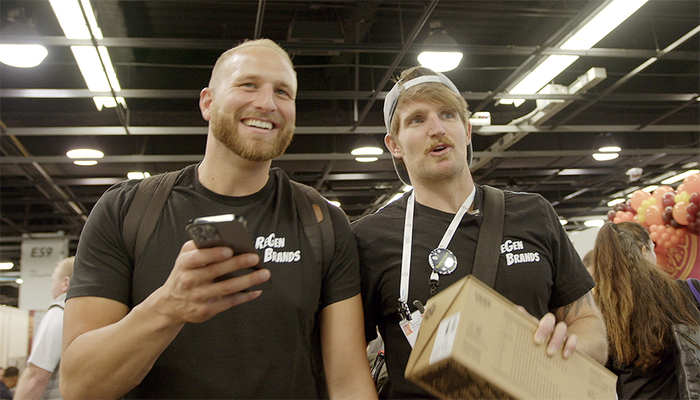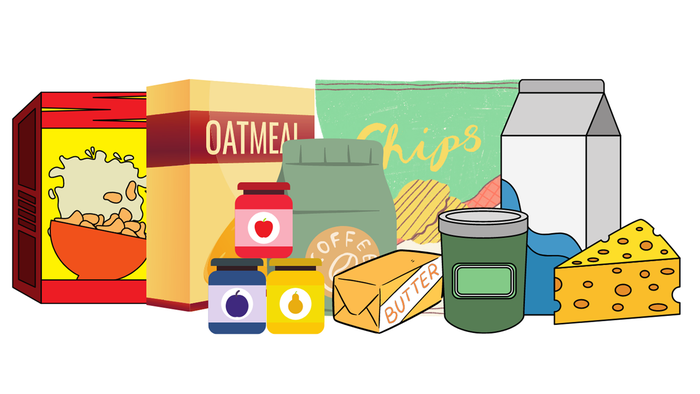ReGen Brands Coalition unites regenerative CPGs to drive demand, grow market
To increase buyers’ demand for regenerative-certified natural products, two “regenerative evangelists” recently launched a trade association, ReGen Brands Coalition. See what this organization is all about.
November 12, 2024

At a Glance
- The ReGen Brands Coalition is a nonprofit trade association with 31 certified regenerative brands.
- ReGen Brands Capital, a for-profit entity, will connect regenerative brands with investors who understand the mission.
- A nonprofit institute provides research and education to the public in support of regenerative practices and brands.
Like many serial entrepreneurs and investors, Anthony Corsaro’s journey into becoming a regenerative agriculture evangelist—and a backer of brands that buy their products—began as a personal voyage.
“Once you feel the difference about what you put in your body and go to some of these regenerative farms, see the difference of the ecology and functioning of a regenerative farm versus a conventional farm, you just can't look away,” Corsaro says.
That journey led Corsaro to co-found ReGen Brands, an umbrella organization that launched ReGen Brands Coalition, a nonprofit trade association of 31 CPG brands including—Lil Bucks, Painterland Sisters, Alec’s Ice Cream, Philosopher Foods, Big Picture Foods and Serenity Kids—that sell regenerative agriculture certified products.
“Every single brand that is a member in the coalition has at least one SKU that they market with a third-party validated regenerative claim,” says Corsaro, who also serves as co-founder and president of the ReGen Brands Coalition.
With multiple certifications for regenerative agriculture, Corsaro says no one was unifying all the different types of certifications within the natural foods CPG community.
“This is very unique and first in the industry,” Corsaro says. “You have all the various certification schemes but no one was uniting all those various efforts because as a consumer, when you go to retail you don't care if it's regenerative, because it's Regenified, or Regenerative Organic Certified, or Land to Market. We're trying to get you to understand that it's regenerative and what that means.”
ReGen Brands Coalition launched in August and currently works with brands that have been certified by different institutions, including Regenerative by A Greener World, Ethos, Regenerative Verified, Soil and Climate Initiative (previously called Soil Carbon Initiative), Demeter Biodynamic Certification, as well as Whole Foods Market’s regenerative assessment.
Corsaro says the coalition won’t open to new members until 2025. “We're focused on figuring out what year one of this program looks like with this inaugural membership,” he says.

Anthony Corsaro, left, and Kyle Krull co-founded the ReGen Brands Coalition to unite CPG brands that make regenerative-certified products with the goal of increasing consumer awareness and demand. Credit: ReGen Brands
Family history and a health crisis
Corsaro’s journey into regenerative agriculture began long ago. Growing up, Corsaro was embedded in his family’s business, the Indianapolis Fruit Company. His orphaned grandfather started selling produce in the early 1930s, growing the large fresh produce distribution family company (officially founded in 1947) into a business serving more than 2,500 retailers in 20 states.
“I learned a lot and really enjoyed my time there,” says Corsaro, who served as the director of marketing and sales at Indianapolis Fruit Company. “But I left because I have an autoimmune disease.” Corsaro’s health journey with hidradenitis suppurativa, (HS), a chronic skin condition that causes painful lesions, led him to seek help via naturopathic medicine. He also found solace in the ideology that food is medicine, most effective when ingredients are grown in nutrient dense soil via regenerative agriculture.
“I became a personal champion and evangelist for the work,” says Corsaro, who was working as the director of business development and Regenerative Food Systems Investment, a news and events company that works with investors in regenerative agriculture.
Corsaro, also known as “AC,” connected with Kyle Krull, the senior director of sales at Kettle & Fire, the grass-fed bone broth company that uses regenerative agriculture for its products.
“Similarly, Kyle had a very intense health journey—his with cancer—where he became very aware of the toxicity of our food and radical disconnection between food and health in our world today,” Corsaro says. “We both saw this need for a CPG-specific conversation, support and dialogue.” Three or four years ago, capital was really focused upstream on farmers and farmland practices. “We also saw this disconnect of bringing that fully through the supply chain, creating demand and interfacing with consumers.”
From podcast to nonprofit and beyond
During the summer of 2022, Corsaro and Krull were both living in Bend, Oregon, when Corsaro pitched the idea of doing a podcast to help consumer brands learn how they could better support regenerative agriculture. The duo launched ReGen Brands Podcast that July to glean insights for brands, retailers, investors and other food system stakeholders. Their first interview was with Kristy Lewis, the founder of Quinn.
At the same time, Corsaro was working as an active angel investor. “And us doing the podcast together, underpinning all these conversations, relationships and learnings helped us launch this [coalition] to try and solve some of these problems we’ve uncovered,” Corsaro says.
That fall, Corsaro left his job as director of business development at Regenerative Food Systems Investment and spent 2023 exploring what to do next. The men hired Arron Mansika, an industry veteran and co-creator of Naturally Boulder, as a fractional executive director of ReGen Brands to give some direction. Over time, Corsaro says they realized CPG brands involved in regenerative agriculture have three distinct, specific needs in commercial, financial and community sectors that required three separate brands unified under the ReGen banner.
“We initially chased that with ReGen Brands as a separate media company, the ReGen Coalition as a 501(c)(6) trade association, and Outlaw Ventures was the original brand that I had given to my investing work in this space,” Corsaro says. “We worked very hard to launch those as sister but very disparate and disjointed entities. Ultimately, it just wasn’t really working.”
Early in 2024, everything changed. “I had a dream where I got the initial download for the specific vision that we have now,” Corsaro says. “And we started chipping away at it.”
Building a one-stop shop for regenerative CPG
To create three distinct pillars, ReGen Brands launched ReGen Brands Coalition in August to focus on collaboration and activation of advancing regenerative agriculture through what is produced and consumed. At the same time, the ReGen Brands Institute was created as a 501(c)(3) charitable organization focused on research and education about brands working on products made with regenerative agriculture methods.
“So, any brand, investor, retailer, news organization, any researcher, anyone that cares about creating more demand for [regenerative agriculture] for CPG, can access all the content in the institute,” Corsaro says.
In October, work began on ReGen Brands Capital, a for-profit entity that will advise, fund and connect regenerative brands with capital that aligns with their growth strategy and mission. He expects that to launch in 2025, after an executive is hired. Ultimately, Corsaro says ReGen Brands Capital will focus on emerging brands, like in the sub-$25 million market.
“We want to work across non-dilutive capital both debt and equity investments and try and help these brands develop a holistic strategy,” he says.That will be accomplished by focusing on three complex problems: designing capitalization strategies for brands; finding money that plugs into those strategies; and accessing new, patient investors using different financial products and models that are better aligned with regenerative outcomes.
About the Author
You May Also Like




